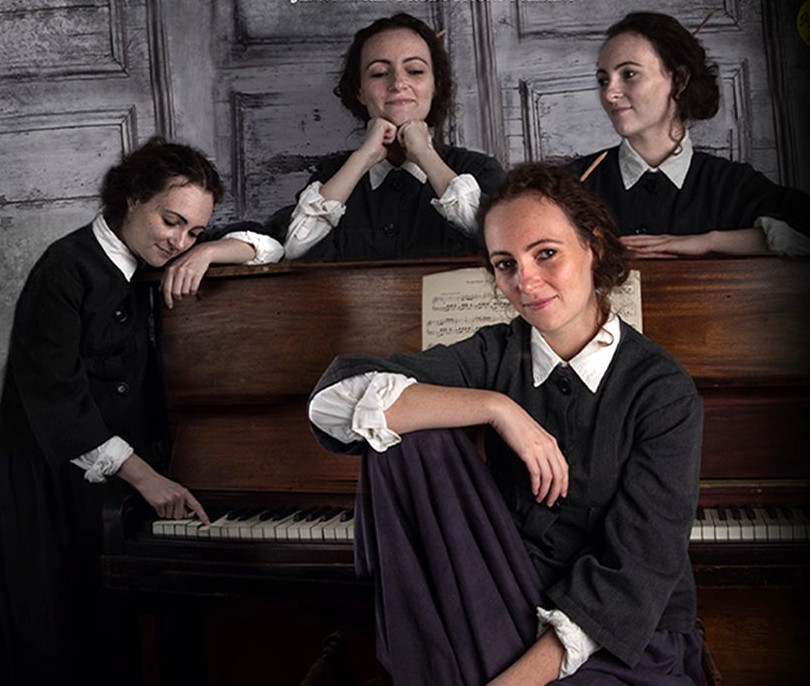
As things open up – hopefully on a permanent basis – we have our first tentative re-emergence of the performing arts and I am pleased to report that the Cheltenham Everyman is eager and prepared to host theatre-goers again.
The Everyman’s opening performance is Jenny Wren Productions’ small scale adaptation of Little Women. The setup is an immediately interesting and ambitious take on the sizeable novel with its large cast of characters, as the play is a sort of two-hander: Hannah Churchill plays almost every character, told from the perspective and reminiscences of Jo March, with Reece Webster appears in the framing narrative as Laurie to provide musical accompaniment.
There’s an immediate comparison to be made to the formidable recent film version by Greta Gurwig, in that both this play and the film use Jo’s role as the chronicler of the lives of the March sisters to editorialise the narrative. In this version, that takes the form of a framing narrative as Jo begins to scribble down the first pages of what will become Little Women and reenact events to her childhood friend Laurie.
It is worth saying from the off that this is an energetic and daunting prospect for lead Hannah Churchill. She has to embody Jo AND then shift into Jo’s renditions of all the characters, with their own ticks and voices, often repositioning rapidly throughout scenes. It is a testament that conversations and scenes remain engaging and well-paced. Maintaining this sort of energy and coordination in a skit would be impressive, Churchill is doing it across a full-length play with only an interval to catch her breath.
The reenactment motif is also used as less of a limitation than as an asset throughout Little Women. Drawing attention to the artifice, and the biases of Jo’s recollections, what she chooses to depict, what she hams up or lampoons, solidifies the drama in a way that a more prosaic rendition with a limited cast would struggle to do.
The main strength of the piece is surely the vignettes, very much reflecting the core appeal of the original work: well-observed and idiosyncratic scenes of adolescence and growth told with sincerity and affection. Having said that, the play inherits some of the deficiencies of Louisa May Allcot’s story too: as much as the scene-to-scene enjoyment is high, the overarching narrative (and here, the framing device) struggle to cohere into a satisfying larger structure.
The two volumes that make up Little Women comprise a lot of material, and there’s a complex calculation to do in an adaptation of what to select, what to redact and what to cut. Aside from some innately core scenes, it’s easy to lend emphasis to any number of different aspects and threads in Little Women. I would argue that the book struggles here as much as this play: some plotlines seem to tie up abruptly or arbitrarily (notoriously, in at least one instance, a result of editorial demands placed upon Allcot), some characters are just clusters of simplified traits, and only Jo and Amy have compelling internal development with most of the people around them used to demonstrate their characteristics.
It’s worth announcing my own biases on this front. There is some material in Little Women that I have more time for than others. As much as the core appeal of the work is, in part, it’s emotive and sentimental view of family life and the coming-of-age of this group of sisters, the work always stands on a precipice of falling from the sentimental into the insipid. Some scenes risk this more than others.
Ultimately, though I might prefer some beats in the plot more than others, I have no reservations about recommending this production of Little Women. The performance is impressive, and if the story is by its nature episodic, these episodes will surely engage you. A happy note to reopen on. ★★★★☆ Fenton Coulthurst 5th June 2021

